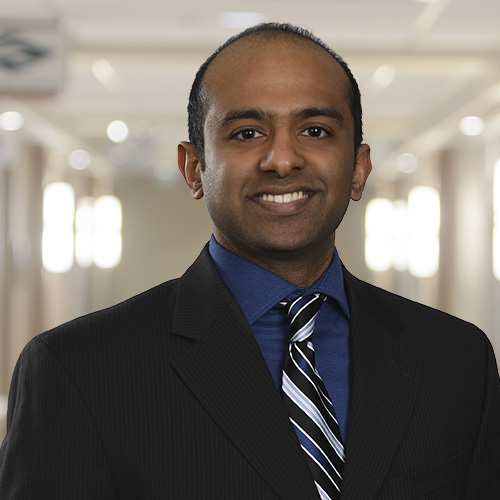Taking Control of Your Heart Health: Early Detection and Preventive Care
January 15, 2025Heart health is something you can take into your own hands. Many of the risk factors for cardiovascular disease are modifiable, meaning you can reduce your risk by making changes to your lifestyle. Factors such as smoking, being overweight or obese, leading a sedentary lifestyle, and having high blood pressure, cholesterol, or blood sugar all put you at higher risk for cardiovascular issues. However, knowing how to assess and address these risks early is key to preventing devastating outcomes like heart attacks or strokes.

One important step in identifying potential heart risks is undergoing a CT heart scan, particularly for those who may not exhibit symptoms but possess several risk factors. Dr. Amit Zachariah, an Interventional Cardiologist at the Riverside Heart and Vascular Institute, emphasizes that even individuals with low to moderate risk can develop heart conditions. The CT heart scan is an essential tool for better risk stratification. “The scan is ideal for identifying hidden risks, especially in those with no symptoms but concerning risk factors,” says Dr. Zachariah.
What is a CT Heart Scan?
The CT heart scan is an x-ray-based test that looks for calcification in the coronary arteries, which supply blood to the heart. Calcified plaque buildup in the arteries increases the likelihood of heart disease. The scan gives a score based on the severity of calcification, helping doctors determine the level of risk. A score from zero to 100 indicates low risk, from 100 to 400 represents moderate risk, and a score above 400 suggests high risk for cardiovascular events. For those with lower scores, lifestyle changes like increasing exercise and improving diet can help reduce the risk further.
Those with high scores (above 400) may be advised to undergo additional tests, like a stress test or angiogram, to investigate further. For anyone at risk, early intervention is crucial in preventing serious heart issues.
Who Should Get a CT Heart Scan?
The best candidates for a CT heart scan include individuals over the age of 45 (for men) or 55 (for women), those with a family history of heart disease, and people with conditions like high blood pressure, high cholesterol, diabetes, or obesity. A lack of regular physical activity also puts you at higher risk. The scan is quick, typically taking just 15 to 20 minutes, and involves minimal radiation, making it an accessible and effective way to monitor your heart health.
Consulting a Cardiologist
Sometimes, the best approach to taking care of your heart is to work directly with a cardiologist. Even if you don’t have alarming symptoms, a cardiologist can help assess your heart health based on your personal history and risk factors. Dr. Zachariah explains that your primary care provider (PCP) may recommend a cardiologist referral if your health history indicates potential heart problems. Those with a family history of heart disease may also want to consider seeing a cardiologist proactively.
Classic symptoms of heart issues, such as chest pain, shortness of breath, palpitations, and dizziness, warrant a visit to a cardiologist. These symptoms can indicate problems like blocked arteries, narrowed or leaking heart valves, or atrial fibrillation. Additionally, conditions like diabetes, chronic kidney disease, high blood pressure, and high cholesterol can increase your risk for heart disease.
Medications and lifestyle changes are often necessary to reduce these risks. New injectable medications, which are given once every six months, are available for some patients, helping to reduce cardiovascular risk with minimal hassle. But even with medication, Dr. Zachariah stresses the importance of regular exercise and a healthy diet to mitigate risks further.
Don't Wait—Get the Care You Need
Ignoring potential heart issues can lead to serious consequences. Delaying care or neglecting symptoms could eventually lead to a heart attack, heart failure, or even death. Over time, untreated high cholesterol can accumulate and cause significant damage, making early intervention crucial. Monitoring your blood pressure and cholesterol and seeking timely medical advice can help prevent complications and improve your heart health.
If you're concerned about your heart health, Dr. Zachariah encourages you to take action. In the Riverside Healthcare community, you can easily schedule a consultation or CT heart scan online or by calling the office directly. It’s always a good idea to discuss heart health concerns with your primary care provider, but you don’t need a referral to see a cardiologist. Taking care of your heart is one of the most important investments in your health. The sooner you address potential risks, the better equipped you'll be to prevent future complications.
By understanding and addressing risk factors early, you can take significant steps toward maintaining a healthy heart and preventing cardiovascular issues down the road.
To schedule a consultation or CT heart scan, patients can go online at www.riversidehealthcare.org or call (844) 404-HRTS.
